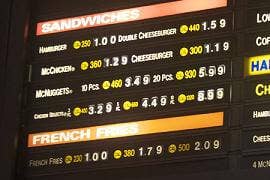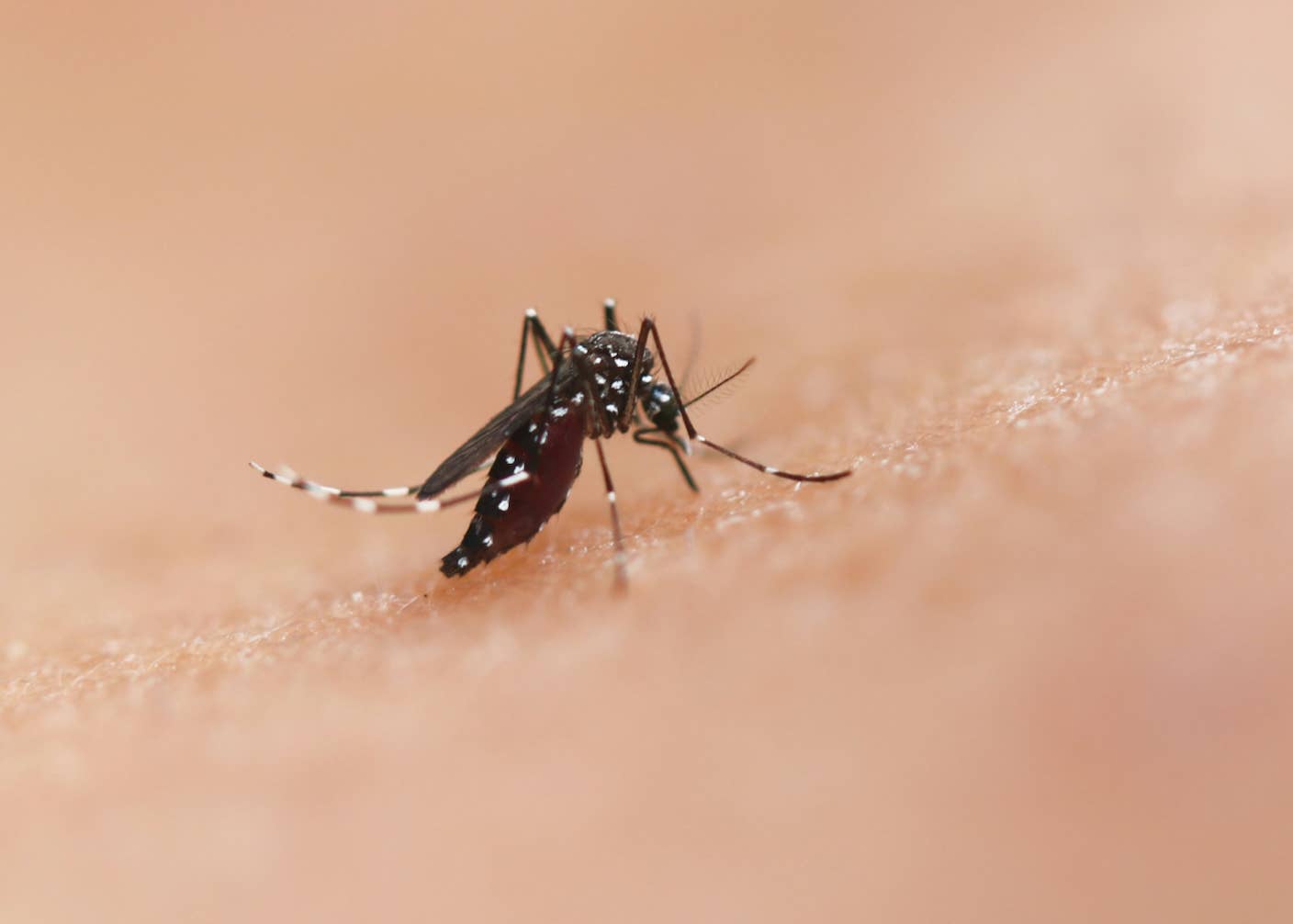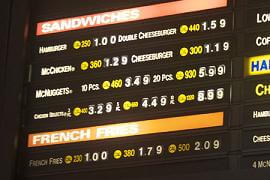Healthcare Bill Requires Restaurants to Display Calories on Menus

Share
The recent US healthcare reform bill has a lot on its plate. Then, again, so do Americans. One of the provisions of the bill will give the FDA one year to develop standards by which all chain restaurants with 20 or more locations will be required to post calorie counts on their menus. More than 200,000 establishments will be effected, with the hope that this will help reduce rates of obesity in the US. Similar programs already exist in locations across the nation including New York City, California, and Seattle. It's debatable about whether any of those programs have been successful in changing how people eat. While Singularity Hub fully supports giving consumers more information so that they can make informed decisions, I have my doubts as to whether this new provision will change the health of Americans.
There is evidence that the calorie counts already provided by chain restaurants are, in fact, faulty. According to a January 2010 article in the Journal of the American Dietetic Association, researchers at Tufts University found that the real caloric value for foods at chain restaurants was an average 18% higher than listed. In some cases the actual value was 200%, with free side dishes often pushing that up to 245%. Frozen meals in supermarkets scored better at 8% over listings. The study laments that there was such a wide range of discrepancy between actual and listed values that the average in both cases has little practical meaning. While the healthcare bill provision gives the FDA power to fine and pursue criminal penalties against those who fail to list their calories on menus, it doesn't establish (or fund?) the creation of a task force to verify those calorie counts. What's the point of listing these numbers if they're aren't valid?
But what if they were? Let's imagine that these calorie counts were double checked, and enforced perfectly. Will this help Americans lose weight? Posting calorie counts on menus is the crudest form of dieting technology. I like data, data is good, but just listing numbers next to food items is really the simplest way to pair science and eating. There are websites dedicated to providing up to date nutritional information on foods, and even iPhone Apps that will scan bar codes to help you monitor your food intake. You can get a bathroom scale that tracks your weight and broadcasts your stats to friends and dieting buddies. Give it time and I'm sure there will be a fitness robot that will urge and guide you in how to exercise (maybe Wii Fit counts?). Bottom line, if you wanted to get "smart" about your diet, there are better ways out there than a simple calorie count.
I'm not sure all data is equal, either. Getting the calorie information out there seems like a good idea, but I think it focuses consumers in the wrong direction. For example, the provision requires better calorie labeling for vending machines. Sounds good, but calorie count alone doesn't really help you make a better decision. Doesn't it matter if you get 100 calories from potato chips versus 100 calories from raisins? Maybe instead of getting smarter vending machines we should just get vending machines that dispense better food.
Changing our weight and health as a nation will take considerably more than data. We need to rethink things at a basic level. First, why are we eating at chain restaurants? We are we eating things with barcodes? Why are we eating things that have been processed and manufactured so that someone in New York and someone in Seattle can have the same meal?
Be Part of the Future
Sign up to receive top stories about groundbreaking technologies and visionary thinkers from SingularityHub.


We've seen places around the world, the Blue Zones, where people regularly live long and healthy lives largely free of the chronic heart disease and diabetes that plague the US. In these places, people generally eat local foods made at home. There's not a calorie count on the spinach you grow in a garden, there's not a barcode on the beans from the neighborhood farmer's market. When you eat real food, mostly plants, you tend to do okay.
Of course, one of the reasons that people eat at chain restaurants is because it's cheap and easy. To that retort I have little to suggest beyond more government reform. We could, with changes in farm subsidies, economic incentive packages, and tax breaks, promote the growth and sale of local (non processed) foods. We could make good foods cheaper. As for easier...maybe learn to eat more things raw? I don't know, I'm sure we can come up with other ideas.
It will take widespread individual effort, not just government regulation to help change the way Americans eat. I'm glad something is being done, but I would favor education over stand alone information. We should teach children and adults to avoid their high fructose corn syrup snacks and chose wholesome foods instead. We probably also need to teach ourselves how to stay active, to build strong community bonds, and to avoid stress (the other key ingredients that keep people healthy in Blue Zones). In the end, being obese isn't wrong. There's nothing morally superior about being fit. But not providing ourselves with the understanding about how to control our weight is wrong. Not helping each individual make their own choice about their size is immoral. The provision in the healthcare bill is a nice idea, but calorie counts are just a fraction of the information we'll need in order to change.
[image credit: Fathead-Movie.com]
[sources: Associated Press, NY Times, JADA]
Related Articles

This Week’s Awesome Tech Stories From Around the Web (Through December 20)

Data Centers in Space: Will 2027 Really Be the Year AI Goes to Orbit?

New Gene Drive Stops the Spread of Malaria—Without Killing Any Mosquitoes
What we’re reading
